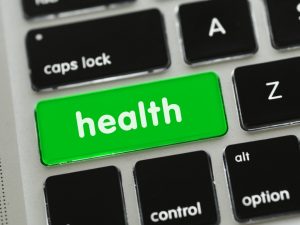
In this guide, LGBTQIA stands for lesbian, gay, bisexual, transgender, queer, questioning, intersex, and asexual. The plus sign (+) at the end of LGBTQIA stands for the many sexual and gender minority identities beyond LGBTQIA. People who identify as LGBTQIA+ are often discriminated against and mistreated, both in the healthcare setting and in the broader society. The stress of these experiences can lead to health problems. It can also cause some LGBTQIA+ people to avoid the healthcare system altogether. The resources on this page can help LGBTQIA+ individuals find welcoming healthcare providers and maintain overall well-being.
- Patient’s Bill of Rights (American Hospital Association)
- Transgender Health Care (Healthcare.Gov)
- LGBTQ Discrimination in Healthcare (The National Center for Lesbian Rights)
- Know Your Rights: Seeking Medical Care as an Intersex Person (InterACT)
- Health Coverage Guide (National Center for Transgender Equality)
- Health Resources (Transgender Law Center)
- LGBTQ+ Healthcare Directory (GLMA)
- World Professional Association for Transgender Health (WPATH)
- Trans in the South (Campaign for Southern Equality)
- Public LGBTQ+ Healthcare Resources (OutCare)
- Emotional Toolboxes: LGBTQ+ (Mental Health America of Central Carolinas)
- QTPOC Mental Health Directory (National Queer and Trans Therapists of Color Network)
- Intersex Brochures and Guides (InterACT)
- Patient Care Services for Veterans with Lesbian, Gay, Bisexual & Transgender and Related Identities (U.S. Department of Veterans Affairs)
- Queer and Trans Black, Indigenous, and People of Color Mental Health and Well-Being (Human Rights Campaign)
- Ten Things Transgender Persons Should Discuss with Their Healthcare Providers (GLMA, or Health Professionals Advancing LGBTQ Equality)
- Ten Things Bisexuals Should Discuss with Their Healthcare Providers (GLMA)
- Ten Things Lesbians Should Discuss with Their Healthcare Providers (GLMA)
- Ten Things Gay Men Should Discuss with Their Healthcare Providers (GLMA)
- Cardiovascular Health for LGBTQ Adults (American Heart Association)
- HIV Basics (CDC)
- National LGBT Cancer Network (National LGBT Cancer Network)
- Lesbian, Gay, Bisexual, and Transgender Persons and Tobacco Use (CDC)
- Lesbian, Gay, Bisexual, Transgender, Queer, and Intersex (LGBTQI+)(Substance Abuse and Mental Health Services Administration – SAMHSA)
- National Alliance on Mental Illness (NAMI) LGBTQ+
- The RISE Registry: A Research network focusing on Alzheimer’s disease and related dementias in the LGBTQIA+ community
These advocacy organizations and resource centers support people at different stages of their lives.
- Asexual Visibility & Education Network
- Bisexual Resource Center
- Intersex Campaign for Equality
- Trans Lifeline
- FORGE (Transgender anti-violence organization)
- LGBTQ Center of Durham
- LGBT Center of Raleigh
- Centerlink Directory of LGBT Community Centers
- Transcend Charlotte: mental health, social support, and education services
- Tranzmission: “Education, advocacy and support for non binary and transgender people in Western North Carolina”
- LGBTQ Center of the Cape Fear Coast
- Campaign for Southern Equality
- LGBT National Help Center
The Human Rights Campaign (HRC) advocates for the rights of LGBTQ people. They offer a wide range of information on issues facing LGBTQ people, including resources for staying well and finding welcoming healthcare environments.
Resources selected by Sophie Nachman, Health Sciences Library, UNC-Chapel Hill
Last reviewed June 21, 2024
